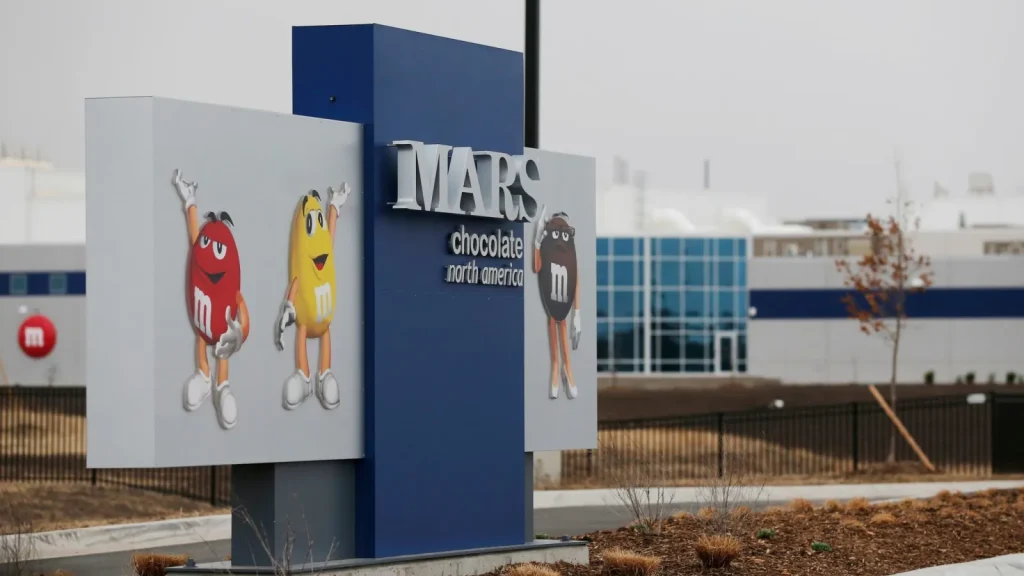Mars launches the Protect the Peanut Plan with a five-year, $5 million commitment to pioneering agriscience, aiming to reduce crop losses that keep up to 30% of peanuts from reaching consumers and to strengthen global food security.
The plan builds on more than a decade of Mars-funded research, including approximately $10 million invested to co-found the Peanut Genome Initiative, which mapped more than 2.5 billion DNA base pairs and released the data as open-source science for the entire industry.
Early results show yield gains of up to 30% from new resilient varieties, including “Sempre Verde” now grown in Brazil without fungicides; Mars is scaling partnerships across the University of Georgia, USDA ARS, HudsonAlpha, INTA, IAC, and EMBRAPA to develop drought- and disease-resistant peanuts.
Mars, Incorporated—one of the world’s top five peanut buyers, purchasing over 300 million pounds each year for brands including its billion-dollar portfolio—announced the Mars Protect the Peanut Plan, its first organized program to safeguard peanuts against rising pressures from pests, disease, and unpredictable weather. The peanut is under pressure, with up to 30% of the loved legume never making it from pod to plate due to pests and disease, and only 1 in 100 peanuts are good enough to become Peanut M&M’S.
Backed by a five-year, $5 million investment, the plan will fund advanced techniques—powered by unprecedented genomic science—to grow hardier peanut varieties that can withstand these threats and improve the reliability of global supply. This multi-million-dollar commitment builds on over a decade of Mars-funded peanut research, including approximately $10 million invested across state-of-the-art scientific efforts. As a co-founder of the Peanut Genome Initiative, Mars helped map more than 2.5 billion base pairs of DNA—roughly equivalent to the human genome—and has shared the data as open-source science available to the entire industry. This work has transformed the search for the perfect peanut from guesswork to genetic precision.
RELATED ARTICLE: Mars Achieves 1.9% Emissions Cut in 2024, Unveils $250M Sustainability Investment Fund
“We have long believed that Mars can play a unique role as an engine of innovation, which is why we’re thinking in generations and betting big on science to protect the peanut,” said Amanda Davies, Chief R&D, Procurement and Sustainability Officer, Mars Snacking. “We know that the perfect peanut won’t be discovered by accident. It will take long-term investment, scientific ingenuity, and the dedication of our incredible partners to keep turning potential into progress — from the greenhouse to the farmer’s field. After all, innovation without implementation is just imagination.”

The Protect the Peanut Plan is already yielding results. Peanut pioneers at the University of Georgia’s Wild Peanut Lab—a long-time Mars partner—have developed more resilient peanut varieties that can thrive in tough conditions, boosting yields by up to 30%. One such variety, Sempre Verde (“Forever Green”), is now being grown in Brazil and requires no fungicides. “The cultivated peanut was a once-in-a-millennium accident of nature, but we can’t afford to wait for chance to strike twice. Creating more resilient peanuts requires transformative science, discipline and partnership,” said Dr. Soraya Bertioli, Senior Research Scientist, Department of Plant Pathology, Institute of Plant Breeding, Genetics and Genomics, University of Georgia. “Simply put: Our breakthroughs would not be possible without the long-term support of Mars.”
The Mars Protect the Peanut Plan is also backing work to:
Cultivate drought- and disease-resistant peanut varieties in partnership with the University of Georgia Tifton Campus, HudsonAlpha Institute for Biotechnology, and the USDA Agricultural Research Service (ARS).
Develop disease-resistant peanut varieties in partnership with USDA ARS, HudsonAlpha Institute for Biotechnology, and the National Institute of Agricultural Technology (INTA).
Use wild peanut species in Brazil to cultivate more resilient peanuts in partnership with Instituto Agronômico de Campinas (IAC) and the Brazilian Agricultural Research Corporation (EMBRAPA).
Through this plan, Mars aims to stem devastating crop losses that cost farmers hundreds of millions of dollars and jeopardize a key source of protein for millions of families worldwide, while securing quality supply for its global snacking brands.
Follow ESG News on LinkedIn

